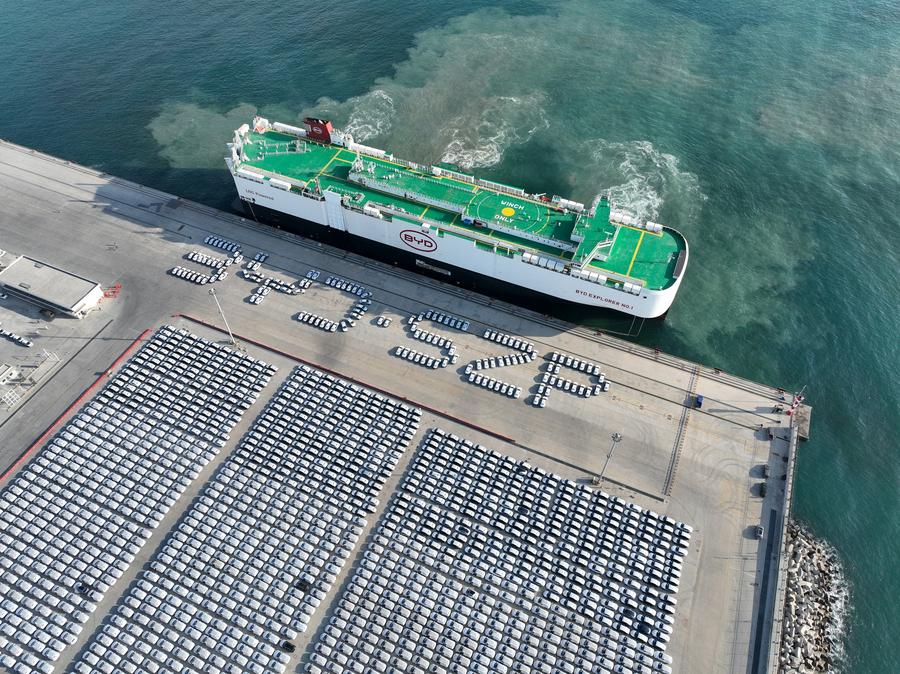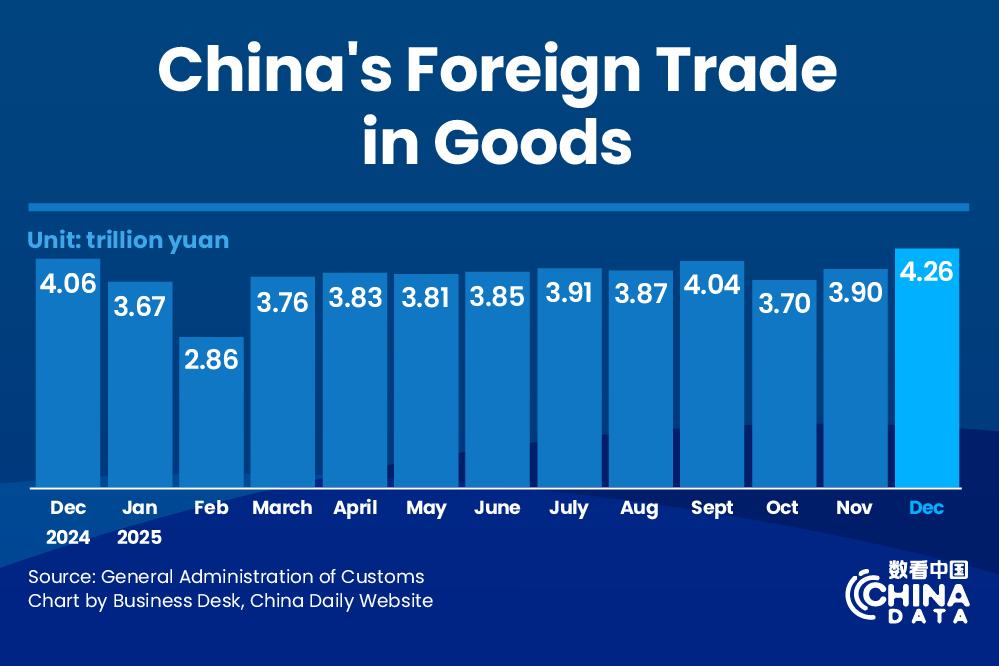China's long game: building economic resilience in a volatile world


ADAPTIVE FLEXIBILITY AND INNOVATION
While China boasts an enviable track record of running an economic marathon, critics point to challenges such as real estate correction, inadequate consumption, low inflation, and demographic shifts. These factors, they argue, are straining China's growth model.
However, these challenges, some of them exaggerated, represent the growing pains of economic transformation, not signals of systemic decline. As China shifts toward high-quality growth, service orientation, and innovation-led development, policy adjustments and temporary slowdowns in certain sectors are inevitable. Such structural transition pains are common in economic upgrading cycles worldwide.
China is well-equipped to manage this transitional period. Its robust and constantly evolving manufacturing base firmly supports supply chains and exports, providing the foundation for industrial upgrading and international competitiveness.
"China's economic resilience stems from corporate competitiveness and policy flexibility," said Song Yu, Chief China Economist at leading US investment company BlackRock. "At the enterprise level, companies are showing strong adaptability and product innovation capabilities, particularly with notable advantages in sectors like electric vehicles (EVs)."
China is rapidly evolving from a major intellectual property importer to a leading global creator. For example, China's artificial intelligence (AI) patent applications had surpassed 1.5 million in number by the end of April this year, accounting for nearly 40 percent of the global total. Similarly, according to a Nikkei Asia report, China leads globally in EV patent quality despite filing fewer applications. The ascent in innovation prowess fosters enterprise innovation, integrates digital and real economies, boosts adaptability amid tensions, and draws foreign firms to its high-tech hubs.
Furthermore, timely governance adjustments have helped. Since September last year, positive shifts have emerged in macroeconomic regulation, industry supervision, and foreign policy. Examples include policy support for private enterprises and increased flexibility in trade tension responses, Song said during a media briefing on the mid-2025 investment outlook.
These developments have enhanced foreign investors' interest in the Chinese market, Song added, noting that both optimism and attention levels have recovered, creating a supportive effect for the market.
Recent data underscore this resilience. In the first half of 2025, exports increased 7.2 percent year-on-year overall, supported by a rise to ASEAN and steady gains to the EU. The EV sector continues to surge, with new energy vehicles now accounting for nearly half of new car sales nationwide and annual production and sales in 2024 exceeding 12 million units. Retail sales climbed 5 percent year-on-year in the first half of 2025, and disposable income grew by 5.3 percent, reflecting improving domestic demand.
Xiong Yi, Deutsche Bank's China Chief Economist, said that China's innovative capacity, the competitiveness of its manufacturing supply chain, and improving domestic demand and business sentiment have increasingly attracted international investors.
"Their remaining concerns center on China's low inflation and still-weak property sector. We believe further improvement in these areas will help attract sustained inflows from global long-term investors," Xiong told Xinhua in a recent interview.
Despite geopolitical uncertainties, many foreign companies continue to see China as indispensable to their global strategies. According to the latest annual member survey released by the US-China Business Council, an organization of more than 270 American companies that do business with China, US firms remain committed to pursuing opportunities in China over the long term and nearly all report they cannot stay globally competitive without their China operations.
Openness is part of China's long-term approach. China's resilience strategy emphasizes greater international integration rather than isolation.
"Similar to what we saw in 2024, China issued a series of policy announcements aimed at creating a more level playing field between foreign and domestic companies, improving market access for foreign enterprises and eliminating discrimination in public procurement," said Jens Eskelund, president of the European Union Chamber of Commerce in China, in a recent interview with Xinhua.
Zhao Bingdi, president of Panasonic China, said the country's recent policies supporting technological platforms and the integration between the digital economy and the real economy will facilitate Panasonic's investments in areas ranging from AI to new energy.
"China is not just a manufacturing giant but a major consumer and innovation hub, offering vast opportunities for foreign firms," said Zhao.




































